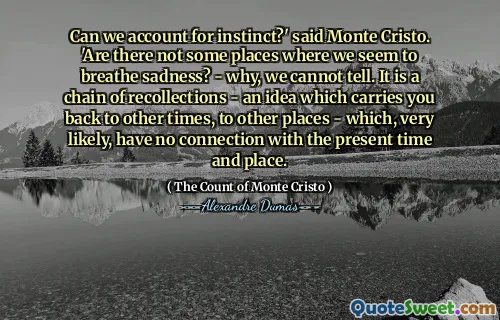I am selfish - you have already said so- and as a selfish man I think not of what others would do in my situation, but of what I intend doing myself.Alexandre Dumas. The Count of Monte Cristo {Kindle Locations 11677-11678}.
In "The Count of Monte Cristo," the character reflects on his selfishness, acknowledging that he prioritizes his own intentions over how others might react in similar circumstances. This admission reveals a deep sense of self-awareness and highlights the complexity of human motivations. The idea of selfishness is explored as a driving force in the narrative, shaping decisions and influencing relationships. Dumas presents the character's internal conflict and motivations, suggesting that a focus on one's own desires can lead to both empowerment and moral ambiguity. This perspective invites readers to consider the implications of self-centered behavior and its impact on personal choices. Ultimately, it prompts a deeper examination of ethics and the nature of revenge within the story's broader themes.






